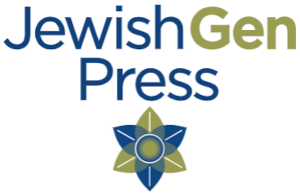

|
|||
| Available in:
Available from in a hard cover for $25.00 Available from in a soft cover for $19.00 Available from in a soft cover in Hebrew for $19.00 |
|||
|
About the Book
In postwar Budapest, Aldó, a doctor who survived the concentration camp but lost his wife and children, slowly sinks into despair. One day a new patient arrives, 16-year-old Klára, who has lost her parents and siblings. The doctor soon discovers, behind Klára's silence and rage, a great love and determination to fight despair. The two become each other's new family, learning to live and love again after the horrors of the Holocaust. But their new-found happiness is threatened by Stalinist purges, revolution, and invasion.
“A sensitively written story of survivors, Aldo a 42 year old gynecologist and Klara a 16 year old, nurtured by their connection to one another following the Holocaust. An inside view of their struggles for safety during the Hungarian political uprisings in 1956. An excellent depiction of lives reshaped by friendship and love.” Kathleen Cahill, Playwright
Author of Charm, The Persian Quarter, Harbur Gate, One Stone Winner, Edgerton Foundation Award, Drama League Award
“A distinctive novel with a healing mission. Varkonyi shows that no matter how the Holocaust and subsequent (tyranny) tried to kill decency, individuality and family, those who loved ad loved well were able to regain their lives.” Eniko Bollas,
Maygar Nemzet
“Marvelous literary work... This book radiates serenity and strength, emphasizing the need - as a universal human drive - to survive a trauma that cannot be processed.” Zsolt Szilveszter Szabo,
FILMTEKERCS.COM Read an Excerpt
At an early Meeting between Aldo and Klara: |
|||
 |
About the Author
Zsuzsa F. Várkonyi is a clinical psychologist and the author of several bestselling books on psychology. I was born and continue to live in Hungary, a country where both Hitler and Stalin gained many devotees. Jews suffered heavily in both periods. In writing this novel I wanted to commemorate my loved ones who bore this double storm of history with a straight back and with- out boasting about their wounds. During his forced labor service as a Jew, my father was in 1944 dragged to the concentration camp of Mauthausen. He survived and returned home, but disappeared once more, during a spring night in 1950, taken to a Stalinist internment camp for three years. He never talked to us about those periods of his life. Both he and my mother wanted to avoid our coming to hate the people we were surrounded by. I am following now their intentions by not writing a single word about the horrors directly. All three main characters of my story have been “orphaned:” A childish, sixteen year-old girl, Klára, who even in 1948, refuses to acknowledge her parents' death; a doctor who, after returning from a concentration camp, searched for his wife and sons in vain; and a warmhearted, weak old aunt whose life no longer had any meaning. The three of them help each other to stand again on their own feet. Life seems almost normal by 1949, when the peace of their days and nights is shattered by a new wave of terror: that of Stalinism. |
||
 JewishGen Press
JewishGen Press
 JewishGen Home Page
JewishGen Home Page
Copyright © 1999-2025 by JewishGen, Inc.
Updated 17 Oct 2022 by LA